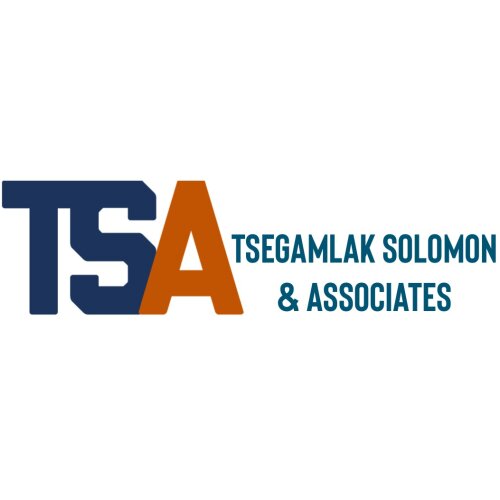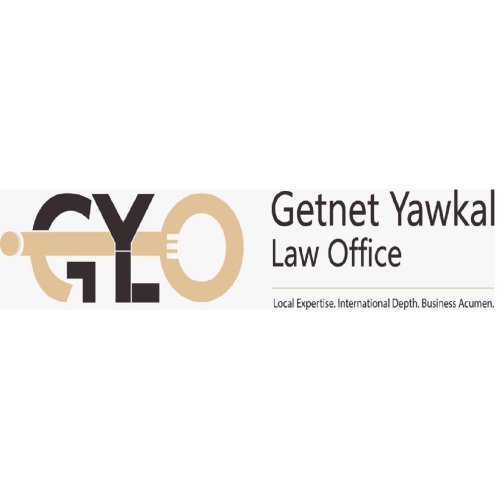Best Sustainable Finance Lawyers in Ethiopia
Share your needs with us, get contacted by law firms.
Free. Takes 2 min.
Or refine your search by selecting a city:
List of the best lawyers in Ethiopia
About Sustainable Finance Law in Ethiopia
Sustainable Finance in Ethiopia refers to the integration of environmental, social, and governance (ESG) considerations into financial services and investment decisions. This approach supports the country’s commitment to sustainable economic growth while minimizing negative environmental impacts, encouraging social development, and promoting transparency. Ethiopia’s financial sector is gradually aligning with global sustainability initiatives, with increasing emphasis on green financing, renewable energy projects, and responsible investing. Recent national strategies and governmental directives seek to foster investments that support long-term environmental and socio-economic health.
Why You May Need a Lawyer
Navigating the evolving field of Sustainable Finance in Ethiopia can be complex, and there are several situations where you might benefit from legal advice:
- You are developing or investing in renewable energy projects and need guidance on compliance with environmental laws.
- Your business seeks funding through green bonds or sustainability-linked loans and requires an understanding of local regulatory requirements.
- You are an international investor exploring sustainable investment opportunities in Ethiopia and need support navigating local policies.
- You need help incorporating ESG principles into your business practices to meet lender or investor expectations.
- You are facing disputes over project licensing, land use, or environmental impact assessments for sustainable ventures.
- You need clarity on the tax incentives or penalties relating to sustainable finance activities in Ethiopia.
Local Laws Overview
Sustainable Finance in Ethiopia is guided by a mixture of national policies, sectoral regulations, and growing standards influenced by global trends.
- The National Bank of Ethiopia (NBE) has started introducing directives around the disclosure of ESG information and risk management for financial institutions.
- The Climate Resilient Green Economy (CRGE) Strategy is the flagship national document that underpins Ethiopia’s sustainable economic growth plans, emphasizing low-carbon investment and green projects.
- New guidelines promote responsible lending by financial institutions, supporting projects that contribute to social development and environmental protection.
- There are legislative requirements for environmental and social impact assessments (ESIAs) before project approvals, especially for infrastructure and energy sectors.
- Tax incentives and government-backed funding mechanisms may be available for certain sustainable investments.
- Large-scale investors must adhere to anti-corruption and good governance principles, in line with broader ESG frameworks.
Frequently Asked Questions
What is Sustainable Finance in the Ethiopian context?
Sustainable Finance refers to financial services and investments that consider environmental protection, social responsibility, and sound governance. In Ethiopia, this includes funding for renewable energy, sustainable agriculture, and other projects that align with green economy goals.
Who regulates Sustainable Finance activities in Ethiopia?
The National Bank of Ethiopia (NBE) is the primary regulator for financial institutions, while sector-specific ministries such as the Ministry of Finance and the Ministry of Environment, Forest, and Climate Change set additional guidelines.
What legal frameworks shape Sustainable Finance in Ethiopia?
Key frameworks include the Climate Resilient Green Economy (CRGE) Strategy, various directives from the NBE on environmental and social risk management, and relevant investment laws.
Are there incentives for sustainable investments?
Yes, the government offers tax breaks, grants, and other financial incentives to encourage investments in renewable energy, sustainable agriculture, and environmentally responsible projects.
Do foreign investors face any special requirements?
Foreign investors must comply with all local laws, including ESG-related regulations and sector-specific licensing. Some sectors may have additional due diligence for foreign capital.
What are Environmental and Social Impact Assessments (ESIAs)?
ESIAs are mandatory evaluations required by law for projects that could affect the environment or communities. They are often prerequisites for licensing and financing approval.
Can a business be penalized for failing to meet Sustainable Finance regulations?
Yes, businesses that fail to comply with environmental or social standards may face fines, license revocation, or be denied access to finance.
What sectors are prioritized for Sustainable Finance in Ethiopia?
Renewable energy, sustainable agriculture, waste management, and low-carbon transportation are key sectors identified for Sustainable Finance support.
Are Ethiopian banks required to adopt Sustainable Finance standards?
The National Bank of Ethiopia has begun introducing requirements for banks to consider environmental and social risks, though full implementation is ongoing.
How do I find a lawyer who specializes in Sustainable Finance?
You can contact law firms with experience in environmental law, financial regulation, or investment law. National legal bodies or professional associations can also provide referrals.
Additional Resources
For more information on Sustainable Finance in Ethiopia or to seek guidance, consider reaching out to:
- National Bank of Ethiopia (NBE)
- Ministry of Finance
- Ministry of Environment, Forest, and Climate Change
- Climate Resilient Green Economy (CRGE) Facility
- Ethiopian Investment Commission
- Chambers of Commerce and local business associations
- International organizations such as the United Nations Development Programme (UNDP) offering support on sustainability initiatives
Next Steps
If you need legal assistance in Sustainable Finance:
- Identify your specific legal needs, whether they relate to compliance, investment structuring, dispute resolution, or project licensing.
- Compile relevant documents, such as project proposals, business plans, and previous correspondence with regulatory bodies.
- Contact law firms or professional associations in Ethiopia that specialize in environmental law, finance, or investment matters.
- Consult with a qualified lawyer to gain a clear understanding of your obligations and options under the law.
- Keep up to date with regulatory developments through government agencies and professional networks.
- Consider ongoing legal support to ensure continued compliance as regulations evolve and your project develops.
Lawzana helps you find the best lawyers and law firms in Ethiopia through a curated and pre-screened list of qualified legal professionals. Our platform offers rankings and detailed profiles of attorneys and law firms, allowing you to compare based on practice areas, including Sustainable Finance, experience, and client feedback.
Each profile includes a description of the firm's areas of practice, client reviews, team members and partners, year of establishment, spoken languages, office locations, contact information, social media presence, and any published articles or resources. Most firms on our platform speak English and are experienced in both local and international legal matters.
Get a quote from top-rated law firms in Ethiopia — quickly, securely, and without unnecessary hassle.
Disclaimer:
The information provided on this page is for general informational purposes only and does not constitute legal advice. While we strive to ensure the accuracy and relevance of the content, legal information may change over time, and interpretations of the law can vary. You should always consult with a qualified legal professional for advice specific to your situation.
We disclaim all liability for actions taken or not taken based on the content of this page. If you believe any information is incorrect or outdated, please contact us, and we will review and update it where appropriate.
Browse sustainable finance law firms by city in Ethiopia
Refine your search by selecting a city.

















